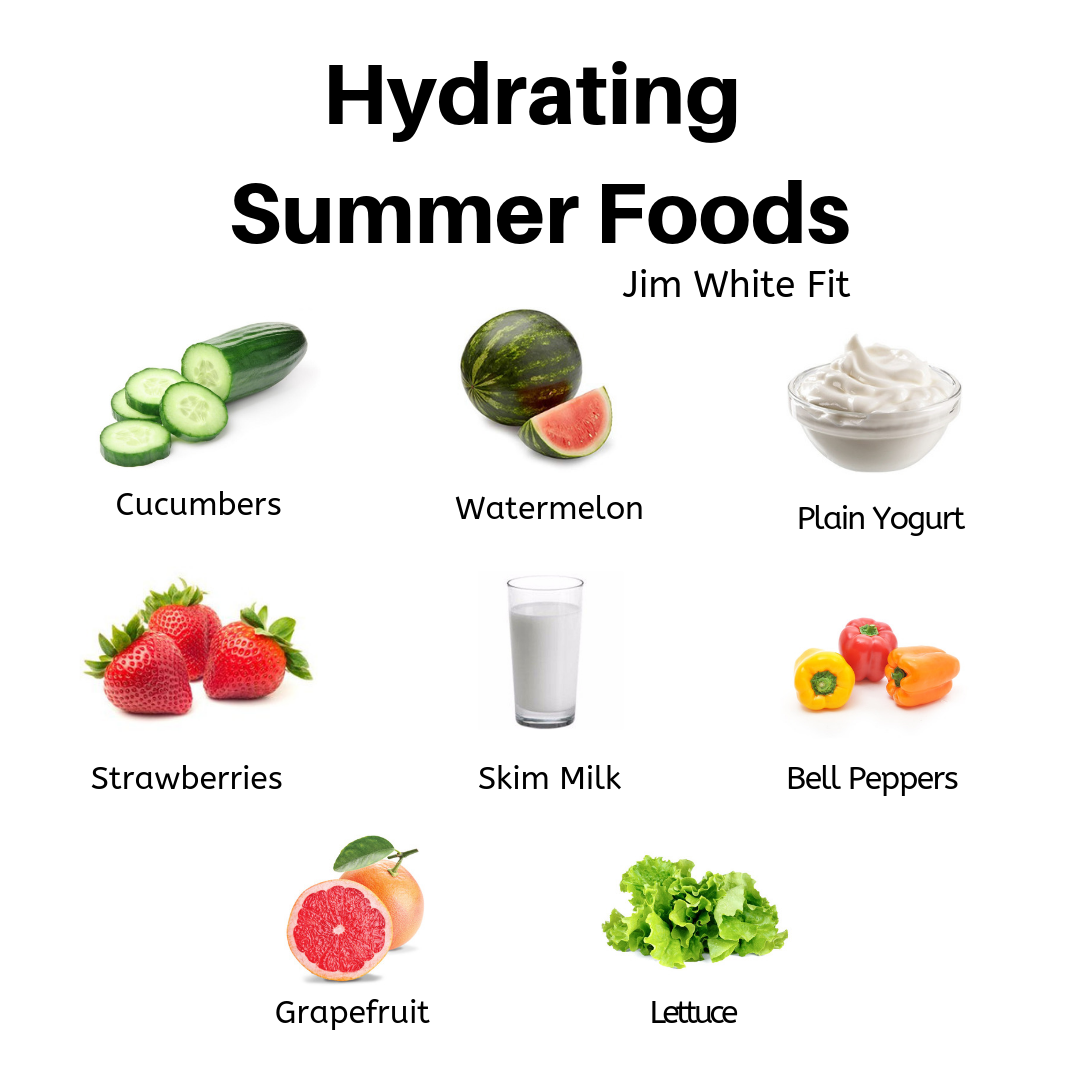As we move into the warmer months of the year (hello, summer!) it is important to make sure we are drinking enough fluids. How much water is enough? A general and decent rule of thumb is to consume half your body weight in ounces each day. For example, a 150-pound female should aim for 75 fluid ounces of water per day. During exercise, it’s important to remember to consume water especially if you are working out outside in order to replace the fluids you lose through sweat. Not the biggest fan of water? Don’t worry! There are plenty of ways to get in fluid during the summer months. Infused water is a great way to give your water some flavor. To make infused water place sliced lemon, lime, mint, cucumber, or other fruits of your choice in a pitcher, fill with water, and refrigerate. Or even eating your water by consuming fruits and vegetables like zucchini, watermelon, tomatoes, melons, oranges, and carrots contributes to your daily fluid intake.
- Cucumbers: 95% water content, provides a small amount of nutrients, such as vitamin K, potassium and magnesium.
- Watermelon: 92% water content, rich in Vitamin C, Vitamin A and magnesium and low in calories.
- Plain Yogurt: 88% water content, great source of protein, providing more than 8 grams and about 17% of your daily needs in a 1-cup.
- Strawberries: 91% water content, and provides fiber, disease-fighting antioxidants and vitamins and minerals, including vitamin C, folate and manganese.
- Skim Milk: 91% water content, provides a considerable amount of vitamins and minerals, including vitamin A, calcium, riboflavin, vitamin B12, phosphorus and potassium plus may also help you rehydrate after strenuous exercise.
- Bell Peppers: 92% water content, contains the highest amount of vitamin C, compared to other fruits and vegetables, providing 317% of your daily needs in just one cup.
- Grapefruit: 88% water content, high in immune-boosting vitamin C, providing 120% of your daily needs in half a grapefruit.
- Lettuce: 96% water content, high in vitamins K and A, both of which have been studied for their roles in keeping your bones and immune system healthy.
Everyone’s body is a little bit different, so be sure to consult with a Registered Dietitian to come up with a personalized hydration plan that’s right for you!


